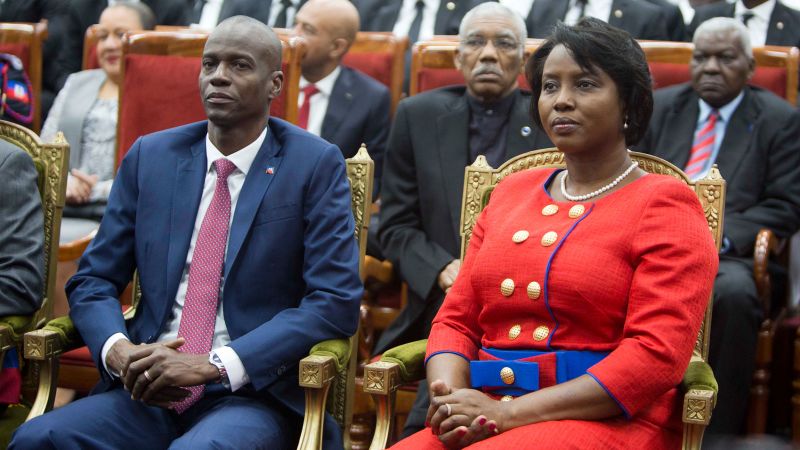
Widow of Haiti’s former president among those indicted over his assassination
CNN
The wife of Haiti’s former President Jovenel Moïse and the former prime minister Claude Joseph are among 51 people who have been indicted over his killing in 2021.
The wife of Haiti’s former President Jovenel Moïse, Martine Moïse, and the former prime minister Claude Joseph are among 51 people who have been indicted over the assassination of the former president, according to a 122-page document from the judge presiding over the investigation. Moïse was assassinated in the presidential residence on July 7, 2021, after more than two dozen armed men swarmed the president’s compound. He was shot 12 times and killed. Mrs. Moïse was also shot multiple times but survived. In the document, dated January 25 and made public by the online Haitian news site AyiboPost on Monday, Judge Walther Wesser Voltaire said Mrs. Moïse conspired with the former prime minister to replace the president. The 51 people named in the indictment are facing charges ranging from complicity and criminal association, armed robbery, terrorism, assassination and crimes committed to the prejudice of former President Jovenel Moïse, it said. The order claims there is “serious and sufficient evidence” against those mentioned. CNN has reached out to the office of Judge Voltaire to confirm the authenticity of the document. PBY&A, the law firm representing Mrs. Moïse, insisted that the former first lady is innocent, saying, “She has no motivation for this attack, and her inclusion is supposedly based on her imperfect memory of the most traumatic night of her life … There is no basis in law or fact for Mrs. Moise to be charged for this crime and including her in this indictment is an embarrassment that further calls into question the legitimacy of the current Haitian government.”













